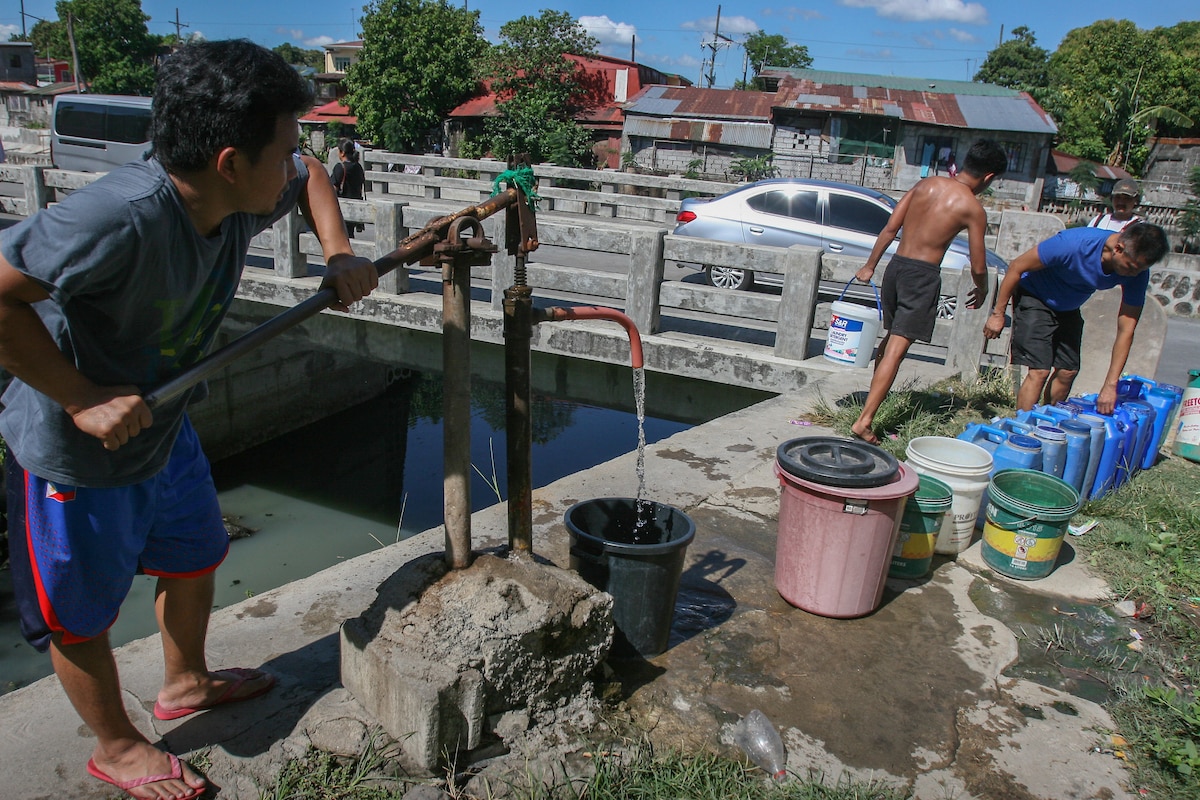UN warns of 'imminent' global water crisis | ABS-CBN

Welcome, Kapamilya! We use cookies to improve your browsing experience. Continuing to use this site means you agree to our use of cookies. Tell me more!
UN warns of 'imminent' global water crisis
UN warns of 'imminent' global water crisis
Deutsche Welle
Published Mar 22, 2023 06:41 PM PHT
About 26% of the global population does not have access to safe drinking water and about 46% of people lack access to safely managed sanitation services, according to a new report by the United Nations.
About 26% of the global population does not have access to safe drinking water and about 46% of people lack access to safely managed sanitation services, according to a new report by the United Nations.
The UN World Water Development Report 2023 was released right before the first UN conference on global water scarcity in nearly a half-century, which is set to start on Wednesday. While launching its new report, the United Nations warned of an "imminent" international crisis.
The UN World Water Development Report 2023 was released right before the first UN conference on global water scarcity in nearly a half-century, which is set to start on Wednesday. While launching its new report, the United Nations warned of an "imminent" international crisis.
What are the main findings of the report
According to the report, the global consumption of water has increased by about 1% every year over the past four decades "and is expected to grow at a similar rate through to 2050, driven by a combination of population growth, socio-economic development and changing consumption patterns."
According to the report, the global consumption of water has increased by about 1% every year over the past four decades "and is expected to grow at a similar rate through to 2050, driven by a combination of population growth, socio-economic development and changing consumption patterns."
The report underlines the huge gap in the availability of water and its usage across different regions, and the need to fill it to ensure all people have access to clean water by 2030.
The report underlines the huge gap in the availability of water and its usage across different regions, and the need to fill it to ensure all people have access to clean water by 2030.
ADVERTISEMENT
Speaking at a news conference, Richard Connor, editor-in-chief of the report, said that the estimated cost of meeting the goals is somewhere between $600 billion and $1 trillion a year.
Speaking at a news conference, Richard Connor, editor-in-chief of the report, said that the estimated cost of meeting the goals is somewhere between $600 billion and $1 trillion a year.
About 10% of the global population lives in countries where water stress is considered "high or critical."
About 10% of the global population lives in countries where water stress is considered "high or critical."
More than 70% of water consumption takes place in the agricultural sector. However, with the growth in city-dwelling populations, "water allocation from agriculture to urban centers has become a common strategy to meet freshwater needs," the UN said.
More than 70% of water consumption takes place in the agricultural sector. However, with the growth in city-dwelling populations, "water allocation from agriculture to urban centers has become a common strategy to meet freshwater needs," the UN said.
The report says that because of climate change "seasonal water scarcity will increase in regions where it is currently abundant — such as Central Africa, East Asia and parts of South America — and worsen in regions where water is already in short supply, such as the Middle East and the Sahara in Africa."
The report says that because of climate change "seasonal water scarcity will increase in regions where it is currently abundant — such as Central Africa, East Asia and parts of South America — and worsen in regions where water is already in short supply, such as the Middle East and the Sahara in Africa."
ADVERTISEMENT
ADVERTISEMENT


